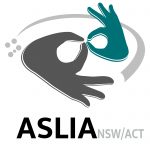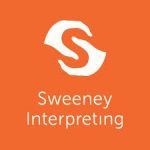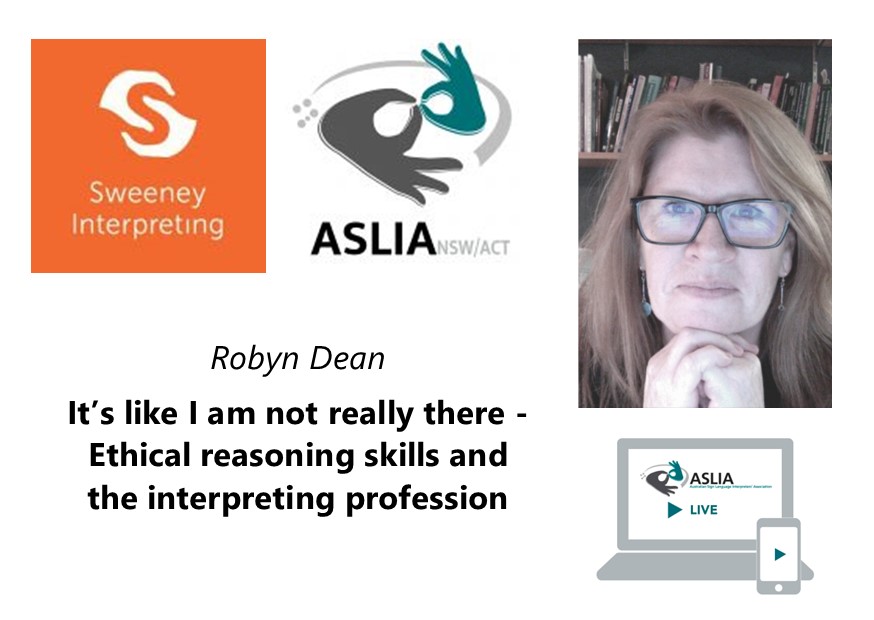Events
It’s like I am not really there- Ethical reasoning skills and the interpreting profession
Livestreamed
Hosted by ASLIA NSW/ACT & Sweeney Interpreting
Sat 22/05/2021 | Starts: 10:00 am | Ends: 12:00 pm | State: National, NSW | Venue: ASLIA Live (via Zoom) only


Registrations close 18th May
Since its beginning, the sign language interpreting profession has made moral and justice claims as its raison d’etre. That is, interpreters claim to provide access to deaf people. Interpreters also claim to make decisions that claim we can empower Deaf people. Further, interpreters claim to be allies, and of recent distinction, we have raised concerns for social justice. However, when comparing our justice claims to our typical discourse norms, interpreters appear to fall short. In an earlier presentation, these discourse norms (i.e., use of heuristics) were highlighted as theoretically problematic. In this presentation, we consider the data behind this claim.
For decades, the Center for the Study of Ethical Development has been collecting data on how people from around the world respond to an instrument that measures moral development and ethical reasoning. This measure, The Defining Issues Test (DIT) uses ethical scenarios in combination with a rating and ranking scheme to measure a respondent’s justice-reasoning, or the ability to reason beyond the conventions and to consider cooperative, collaborative, and shareable ideals.
The DIT was administered to a cohort of 25 sign language interpreters in the US. This presentation reports on the DIT data that suggests that our heuristics do indeed impact our ethical reasoning. Normative data for different age, educational, and professionals also show that interpreters may lag behind those individuals they work with (doctors, lawyers, etc.).
A note from ASLIA-Q and ASLIA-NSW
These two ethics presentations by Robyn Dean build on each other. The first one raises awareness around the interpreting profession’s habits of speech or heuristics. Although the argument is research based, including qualitative data from interpreters, it remains a theoretical argument. The second presentation expands the theoretical argument and adds an additional layer: data from a standardised instrument that quantitatively measures ethical reasoning. Even though these presentations build on each other, they are stand-alone presentations. It is not necessary to attend the first to understand the second.
Participants will be given an opportunity to take the DIT to receive your personal ethical reasoning score in a confidential manner. Details will be made available upon registration for either session.

Robyn K. Dean, CI/CT, PhD: Robyn has been a nationally certified signed language interpreter for over twenty-five years with particular service in the field of healthcare. Her scholarship in decision-making and ethics in community interpreting is recognized internationally. Robyn has over twenty publications, all of which focus on the theoretical and pedagogical frameworks used to advance the practice of community interpreters. She is currently an Assistant Professor at the Rochester Institute of Technology, where she is the lead instructor on the institute’s postgraduate degree in healthcare interpretation. Robyn also teaches on postgraduate degrees designed for signed language interpreters in Europe.
| NAATI PD Points | 2.20 - 10 pts |
| All Enquiries | info@aslia.com.au |

